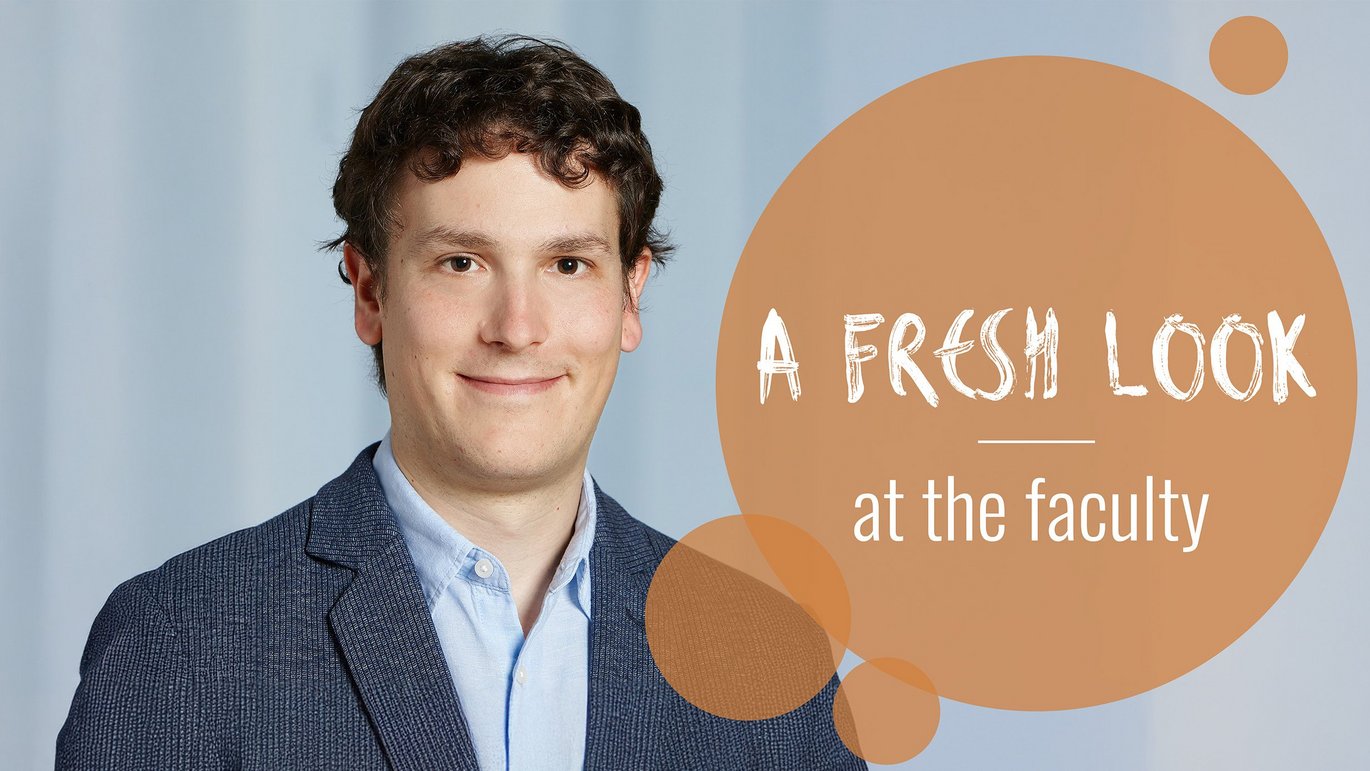“People reach out here – and take the time to help”
What is it like to work at Health when you're new, coming from abroad, and have just arrived? We asked several international colleagues from the faculty's five departments. Associate Professor Klaus Eyer from the Department of Biomedicine shares his fresh perspective on the faculty.

Who is Klaus Eyer?
- Name: Klaus Eyer
- Born: 1985
- Background: Born and raised in Switzerland
- Position: Associate Professor at the Department of Biomedicine
- Research area: Immunology and single-cell analysis
- Start date: 2024
- Previous employment: ETH Zurich, Switzerland
Why did you apply for a job at Health?
It was a combination of many factors. At the time I applied for the position, research funding in Switzerland was being significantly cut, and it was hard to find a permanent job. So, my partner and I started looking at other countries we could imagine living in. Denmark was one of them – and Aarhus University, especially Health, had a very good reputation.
Before applying, I spoke with a couple of researchers from here, and they gave strong recommendations for Health. It’s a faculty where it’s easy to collaborate and start new projects – sometimes all it takes is a phone call. That really appealed to me.
How does Health differ from your previous workplace?
First and foremost: There’s an incredibly low practical threshold for collaboration. In Switzerland and France, I experienced many more layers of bureaucracy and legal barriers before a research project could get off the ground. Here, things are much more flexible and solution-oriented.
Another difference is how the workday is structured. In Denmark, there’s a clear culture of starting relatively early, working efficiently during the day – and then going home at a reasonable time. That’s different from both Paris and Zurich, where people often start late (Paris) and work long hours. Here, it fits better with family life. Especially when, like me, you have a small child at home.
What do you value most in your professional life?
I work at the intersection of method development and immunology, and it’s important for me to have room for curiosity and depth. But what I appreciate most here is actually the culture.
People are incredibly helpful.
As a new employee, I experienced people reaching out unprompted, asking how I was doing, and offering their help. That’s not something to take for granted. I also find there’s a strong understanding that people have multiple roles – as researchers, teachers, private individuals, and parents. That creates a healthy balance.
Read the other articles in the series:
"Put yourself out there – that’s my best advice"
"The environment here is also competitive, but I feel more secure"
“Health has created a culture where people continuously learn from one another"
"Here, professors also receive feedback from junior researchers"
“I believe that Pippi is right and often have her quote in the back of my mind"
Do you have a favorite place – at the department or in Aarhus?
I really enjoy the harbor area in Aarhus. It’s new to me – where I come from, there are mountains and glaciers, but no saltwater or harbors. So, taking a walk by the water in Aarhus is something I really value. There’s something special about the light, the smell, and the seaside environment that I’m not used to – Fishing is good as well fun, even though the fish are elusive.
What do you wish you had known before starting your current position at Health?
There are lots of little things you only discover along the way – especially practical and administrative matters. Denmark is very digital, and it takes a bit of time to get all the apps and systems running.
It also took me a while to get used to the Danish communication style – it can be very direct and concise. For example, after my job interview, I received an email that simply said: “Klaus, we need to talk. It’s about your interview.” I was sure I had done something wrong! Of course, it turned out to be a positive call, but it was a good example of how you need to adjust your expectations about how messages can be phrased.
What have you brought with you from your previous workplace/your home country?
I think the most important thing I’ve brought with me is an open door and an open approach to conversations. In Switzerland, I spent a lot of time communicating with the public about research – for example, during a referendum about banning animal testing. That experience taught me how important it is for researchers to be accessible and explain their work to the public.
Here in Aarhus, I also try to keep an open door, especially for students who need someone to talk to. It can be about research, but also about uncertainties, conflicts, or career choices. I think it makes a big difference – especially for international students – to have someone they can turn to for advice or just to talk about how things are going.
Do you have a good piece of advice for (international) colleagues recently hired at Health?
My best advice is: Reach out. Ask for help, talk to your colleagues, participate in meetings and social events. There’s a great willingness to help here – but you have to take the first step, because Danes aren’t exactly the world’s most extroverted people.
If you sit alone in your office and try to figure everything out yourself, it can quickly become overwhelming. That goes for the language, the systems, and the professional aspects. But if you use the network around you, everything becomes much easier – and more fun too.
Contact
Associate Professor Klaus Eyer
Aarhus University, Department of Biomedicine
Phone: +45 36 20 47 71
Email: eyerk@biomed.au.dk